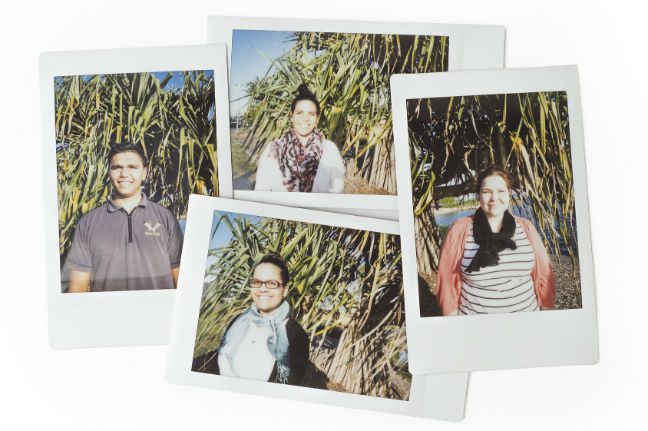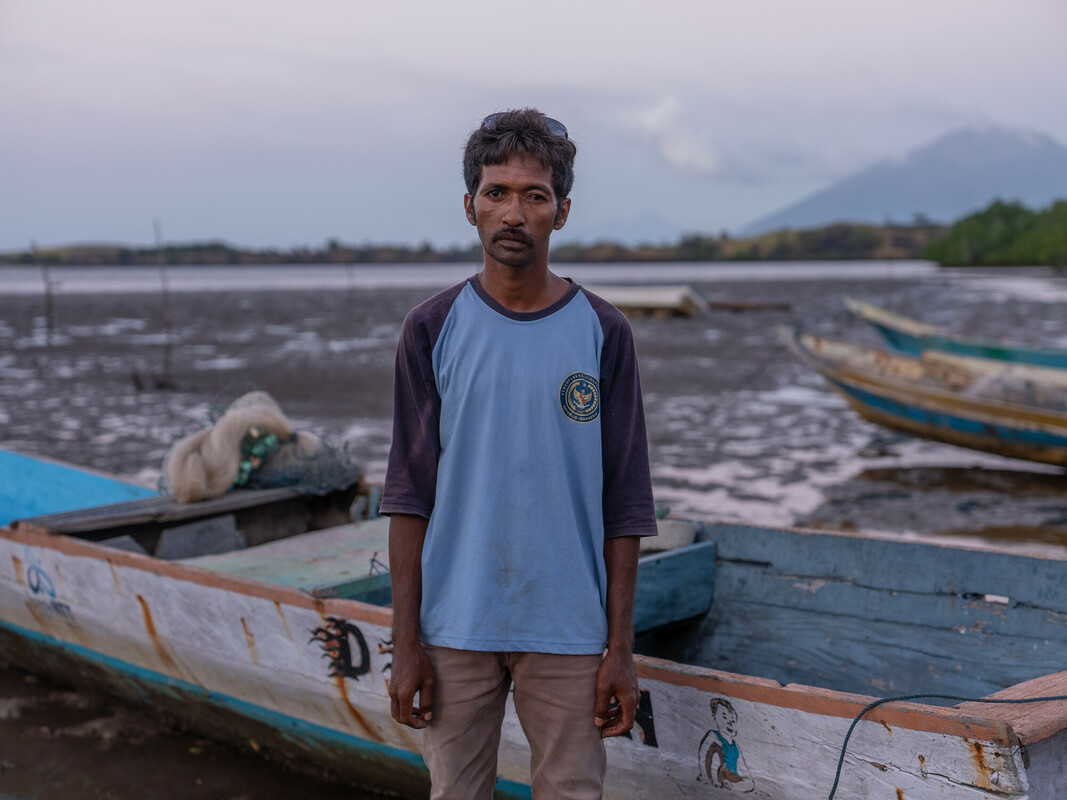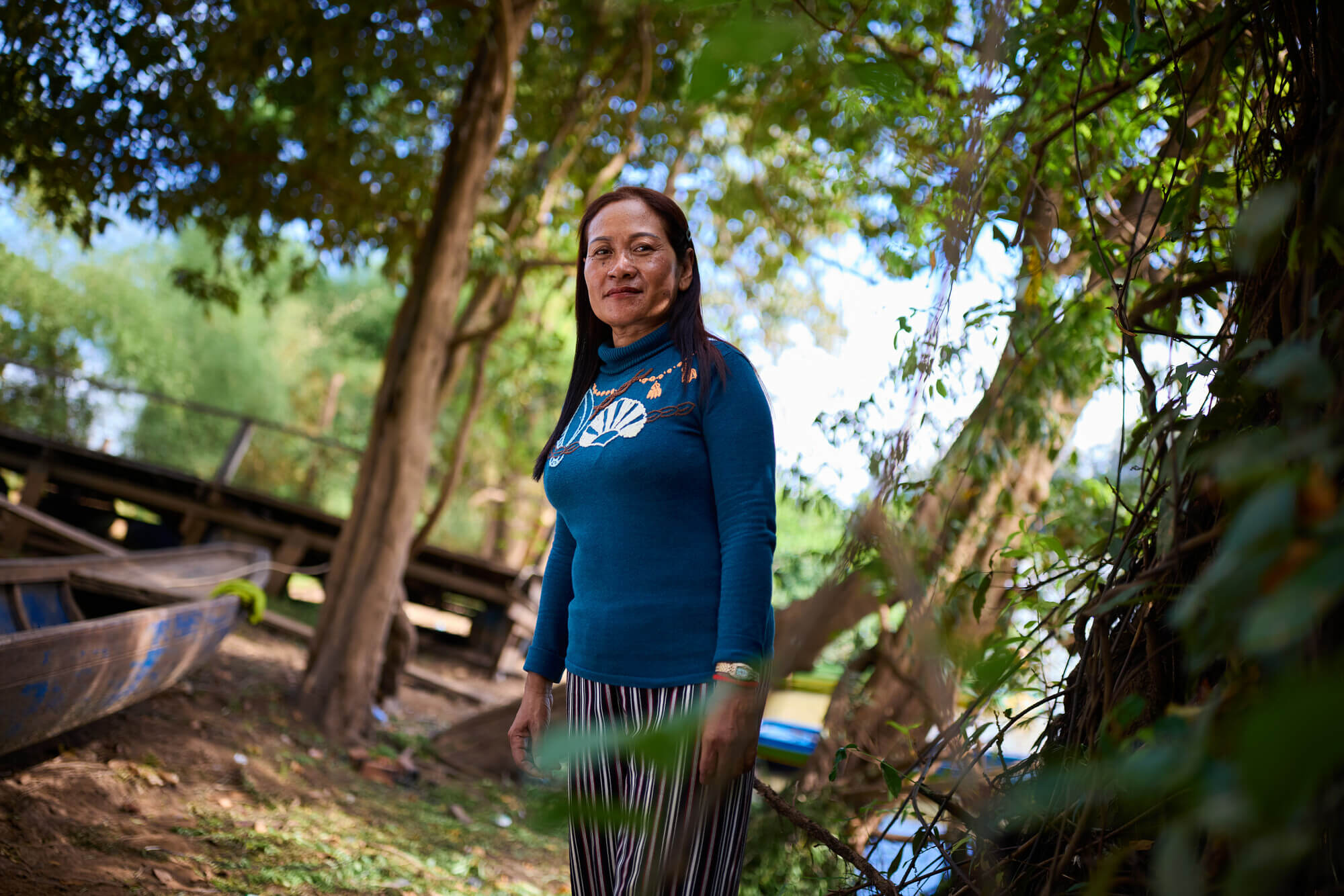Over the past two years, Oxfam has supported 25 young Aboriginal and Torres Strait Islanders to proactively affect change within their communities. As the 2012–2014 program cycle draws to a close, making way for the next group of bright and passionate young people, two participants share their inspiring stories of change and how your support made it happen.
Community arts programs aimed at reconnecting Aboriginal people to the proud tradition of storytelling. Youth outreach projects that give young people a space to share their feelings, form supportive relationships, and plan for the future. Proactive services that assist Aboriginal and Torres Strait Islander people in securing safe housing, employment, and training opportunities.
These may sound like government programs developed by large industry bodies; in reality, they are grassroots programs designed and developed by passionate young Aboriginal and Torres Strait Islander people, aged 18 to 25, who seek to affect positive change within their communities.
Oxfam’s ChangeCourse program works with these young people over a two year period, providing support, guidance and training to help them implement their programs and ensure it’s sustainable. As the 2012–2014 program cycle comes to an end, several participants attended a small grants workshop on the Sunshine Coast to reflect on what they’ve learned throughout this journey and what the future holds.
Jermayne, 21, Beaudesert, QLD
“I’ve always had an inside passion for working with youth, and always thought I could do a bit more for my community. But I never took that leap of faith; I never really had that belief in myself.
“As a young youth worker … the only real experience I had was life experience. Just growing up and experiencing the hardships that I did, I was able to relate to the youth in our community.
“Growing up, I could’ve made some better choices. I think that’s how I can relate now to these kids because … I got into some strife. I learned the hard way. Once I grew up and started working, life became drama-free and I liked it.
“Ever since then, I’ve been working. I started slowly changing my life. For me, I wanted to change.
“[My program is] a 12-week course, which I run with young fellas who’ve been kicked out of school or have left school and aren’t doing much. They really have no skill set at all and no knowledge for the workplace. So I went around and tried to reconnect with the youth in our community … They were kind of slipping through the cracks.
“I just went and talked to them, which was the best thing I could do. Because no-one really sees them. In their eyes, no-one wants to talk to them or wants to help them.
“Indigenous people don’t really identify depression as depression. They see it as weakness, which then leads to suicide and self-harm.
“Indigenous people don’t really identify depression as depression. They see it as weakness, which then leads to suicide and self-harm.
“I’ll often just pull people aside and say, “Are you ok?” That’s often all it takes. And for some people, it’s saved them.
“[ChangeCourse has] not only played a big part in my work life and the choices I’ve made as a youth worker; it’s also largely impacted me as a person. All the great people I’ve met, the experiences, the training … The support itself is just amazing. Part of my goal as a person was being able to get out and help people — [but] they’ve helped me. So much. They couldn’t have done a better job.”
Talia, 27, Raukkan, SA
“I work for Housing SA … in our community, if you’re homeless or a young person under the age of 18, you’re taken from your small country town and put in a shelter in Adelaide. That’s your only option. There is no support elsewhere, there’s nothing. The amount of kids we have couch surfing, or living on the street, is just huge.
“No one wants to be taken away from their support systems, their families, their friends … So one of the things I want to do [with my program] is provide pathways for these kids. A bit of guidance to looking at private rental and their options with Housing SA.
“There’s a lot of discrimination towards Aboriginal people [in the private rental market], especially Aboriginal families, because they are so large … I often send people to certain real estate agents who I know will seriously consider their application, whereas others won’t even look at it.
“[My mum] teaches kids in years 10, 11 and 12 and many of them said that when they’re 18, they’re going to sign up for housing, go on the list to get a house.
“[ChangeCourse] has definitely given me a confidence boost on what I’ve been doing so far in my community … It’s been so great to come together with everyone, hear their stories and share what we’re doing.
“So it’s kind of this cycle, where their parents are telling them they have to put their name on a list to get a house. I feel like I want to try and break that. Home ownership is actually an achievable goal. I want the kids to strive for something more than just public housing.
“I think it comes back to their confidence in getting jobs, not just being on Centrelink. I think there are a whole bunch of ways we can be inspiring kids to reach for higher goals, rather than just finishing school, getting a house and going on Centrelink. They can be so much more.
“[ChangeCourse] has definitely given me a confidence boost on what I’ve been doing so far in my community … It’s been so great to come together with everyone, hear their stories and share what we’re doing.
“I’ve signed up to be a mentor in the next cycle. I really want to give back.”



